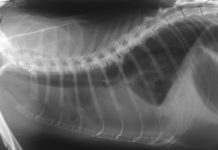Brain cell degeneration is a condition that not just we humans experience. As a matter of fact, animals may also experience this, including our loved pets at home. Actually, brain cell degeneration in cats or Neuroaxonal Dystrophy is a group of hereditary abiotrophies that affect various parts of the brain. The term abiotrophy is actually used in denoting the loss of function because of cells or tissues degeneration without any known reasons. Further, the age of the onset may vary in different breeds, yet it is commonly at over 5 weeks in cats. Read on to this article and get to learn more about this particular feline disease.
Brain Cell Degeneration in Cats: What is this feline condition?

Neuroaxonal dystrophy is the scientific term for brain cell degeneration in cats. This feline condition denotes a group of hereditary abiotrophies, which may cause feline brain degeneration. This particular term is used in the description of the degeneration of the brain cells, which cause a loss of the function in the cat. These particular conditions may appear even without any warning and have no perceptible cause.
The brain of the cat is, as we know, a compound organ, which is responsible for the many functions. This includes the behavior of the cat. Though most of the cats are healthy, some may develop diseases, which may affect the brain in a negative manner. Furthermore, some of these conditions are just minor, which some are permanent. The brain cell degeneration in cats may be a devastating prognosis for any cat owners.
Types of Cat Brain Cell Degeneration
There are actually a few types of brain cell degeneration in cats. Here are some of the most common ones:
- Inherited conditions of an unknown origin
- Viral infections
- Cognitive disease
Causes of Cat Brain Cell Degeneration
In a lot of cases, the cause of the brain cell degeneration in cats is not known. Nonetheless, some cats exhibit behaviors, which are certain to various conditions. Some of the most common brain disorders that are diagnosed in cats include:
- Congenital brain abnormality
- Cancer
- Tumors
- Advanced periodontal disease
- Neurological disorders
- Hypothyroidism
- Hypertension
- Kidney failure
- Advancing age
- Panleukopenia virus infection
Symptoms of Cat Brain Cell Degeneration
The signs and symptoms that comes with the cat brain cell degeneration in cats depends mainly on the cause of it. Some of the most common symptoms of the condition include the following:
- Making loud noises for no ostensible reason, often throughout the night
- Having no interest in water or food
- Not using the litter box
- Disrupted sleep
- Staring into the space
- Wandering away from home
- Disorientation
- Rigid front legs and flexed hind legs
- Pomposity of the head
- Tilting of the head
- Abnormal gait when walking
- Swaying back and forth
- Ungraceful movements
- Tremors
Prognosis of Cat Brain Cell Degeneration

The vet may go through various steps in diagnosing the condition of the cat. He or she will start by taking a thorough and comprehensive history of the health of the cat. Make sure that you include any information, which may assist the doctor in obtaining a precise diagnosis. This may include unusual birth history, pre-existing conditions, or trauma suffered diagnosed by some other vets.
After taking the medical history of the cat, the vet may examine the cat to observe its behavior. Your vet may look for some unusual patterns of gait, vocal issues, abnormality in the reflexes, head tilt, and cognitive awareness. Moreover, the vet may also draw blood to run some laboratory tests including a thorough biochemistry profile, CBC, and blood sugar test. Additionally, the veterinarian might also take a urine sample to test for any infection on the urinary tract.
Commonly, vets take x-rays of the brain in order to determine if a tumor might be responsible for the symptoms of the cat. In the event that the vet want a more thorough view of the cat’s brain, a CT scan or an MRI might be needed. These tests are commonly done at a certain facility. In case these tests come back normally, a spinal tap might be performed so the doctor may look at the spinal fluid. Any abnormalities in the spine fluid might be an indication of an infection like encephalitis or meningitis.
Treatments for Cat Brain Cell Degeneration
In most of the cases of the brain cell degeneration in cats, there is no restorative treatment. The doctors often suggest medications that may help in controlling the symptoms if possible. This might include prescribing anxiety medicines or prescribing a certain diet in warding off the effects of aging.
In the event that an infection is present, the doctor might try a certain course of antibiotics. Some of the cats might benefit from an assessment by a veterinary psychologist or animal behaviorist. These professionals may recommend things that you ca do at home in helping the cat. Furthermore, some of the suggestions might include avoiding stressful situations and keeping the cat’s litter box within a reach.
Those cat owners who suspect their cat have a brain cell degeneration disorder, go and pay your vet a visit for immediate action.









